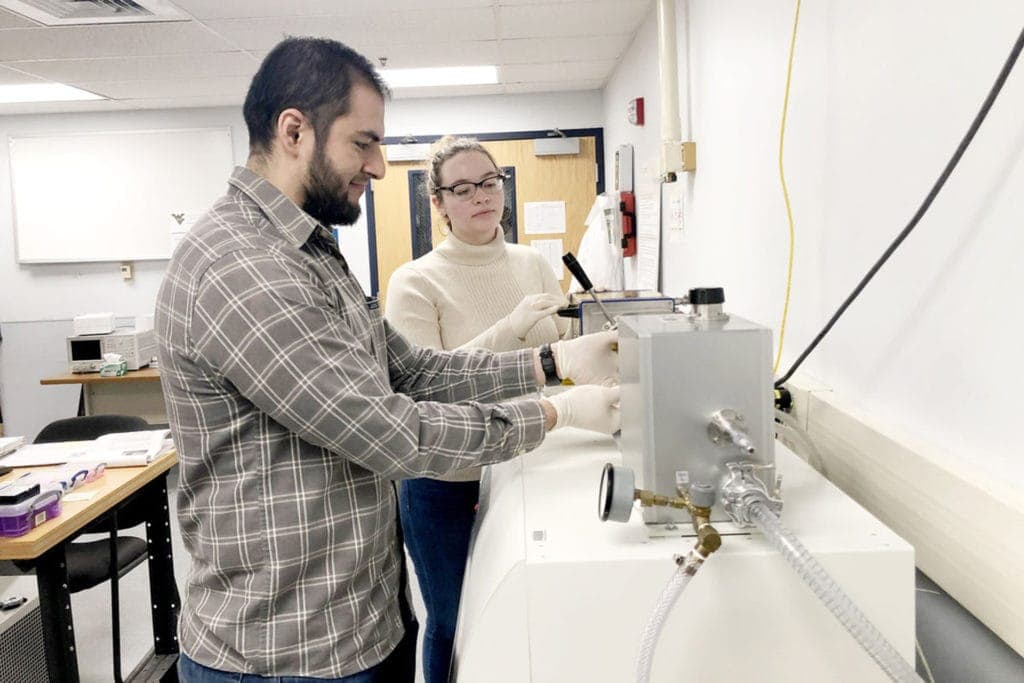In the United States we throw away a lot of energy.
In power plants fired by fossil fuels alone, 67 percent of the electricity generated is released unproductively into the environment in the form of heat, according to the U.S. Energy Information Administration.
By rethinking the design of thermoelectric materials, which have the ability to convert heat to electricity, Xueyan Song, a professor of mechanical and aerospace engineering at West Virginia University, is working to develop a method to recover the wasted heat energy from the air, resulting in improved sustainability and efficiency of the energy infrastructure in the U.S.
“Among all kinds of electricity generations, thermoelectric materials can convert the heat or temperature difference in electricity directly and vice versa,” she said.
According to Song, thermoelectric technology has historically been too inefficient to be cost-effective in most applications.
“Since the 1990s, well developed thermoelectric materials have been heavy, toxic and low in abundance as natural resources, and only able to function in oxygen-free environments at high temperatures,” Song said. “Thermoelectric materials could be much more efficient if they were made of non-toxic and earth abundant elements and could operate in the air where the wasted heat energy is emitted from the manufacturing and power generation systems.”
Song explained that thermoelectric materials have been used to power spacecrafts for decades, providing a viable source of power for deep space missions when the sun is out of range and can’t effectively generate power through solar panels.
Through a $639,784 grant funded by the National Science Foundation, Song will use cobalt oxide-based materials, a chemical compound used extensively in the ceramic industry, to improve thermoelectric devices.
According to Song, these materials are promising candidates for developing thermoelectric oxide ceramics due to their thermal stability, natural abundance and non-toxicity.
“This method will utilize materials that are conventional, low cost and can be readily scaled up for massive production,” Song said.
Song’s research has the potential to solve the existing limitations of thermoelectric materials for widespread use in the spacecraft, manufacturing and automotive industries.
“The demand for energy is dramatically increasing worldwide and the environmental impact due to the consumption of fossil fuels is progressively alarming,” Song said. “Thermoelectric technology could significantly improve the sustainability of our energy infrastructure.”
The project will provide training to undergraduate and graduate students and involve them in research and educational activities in functional ceramics and energy harvesting.
As part of the grant, Song hosted a statewide workshop, the 2019 Research Summit of students, teachers and researchers (STARs) in West Virginia. The workshop connected high school teachers, students and researchers across the state to showcase research projects, findings and facilities at WVU, and encourage students to participate in research activities underway at the University.














